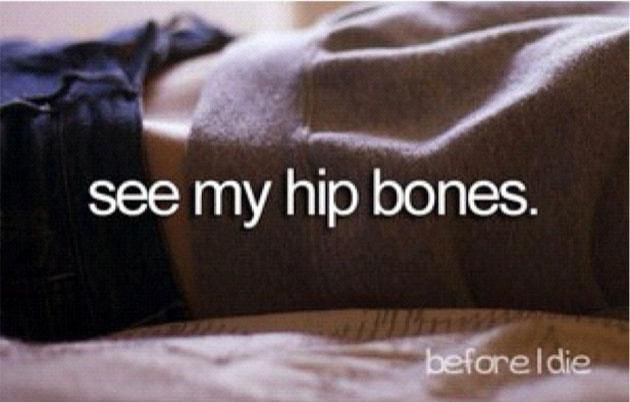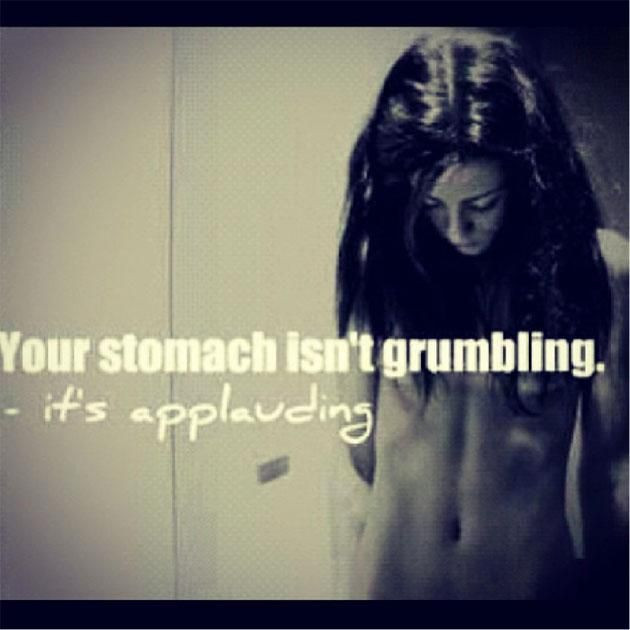Thinspiration On Instagram: Pro-Anorexia Community Persists, Finds New Ways To Spread Social Media Message [PHOTOS]

Ever heard of “thinspiration?” In April 2012, Instagram — a social networking community dedicated to image and video sharing — banned the hashtags #thinspiration, #thinspo, #proanorexia, #probulimia, and #loseweight from its site and mobile apps in hopes that it would help to quell eating disorder promotion on its platform. However, it seems that the pro-anorexia community has found new, innovative ways to expand its following and stay on the growing social network.
According to the Huffington Post, Instagram, along with Twitter and Tumblr, have become huge catalysts for the proliferation of eating disorder promotion. Just as others find people with similar interests using the media, individuals with eating disorders are able to find like-minded people using the social networks as well. Last year, when Instagram received complaints about the abundance of pro-eating disorder promotion on the site, it changed its guidelines to ban thinspiration and other self-harm content.
The guidelines read:
“Don't promote or glorify self-harm. While Instagram is a place where people can share their lives with others through photographs and videos, any account found encouraging or urging users to embrace anorexia, bulimia, or other eating disorders; or to cut, harm themselves, or commit suicide will result in a disabled account without warning. We believe that communication regarding these behaviors in order to create awareness, come together for support and to facilitate recovery is important, but that Instagram is not the place for active promotion or glorification of self-harm.”
But is that enough?
In response to the banning of certain hashtags, pro-eating disorder groups have found new ways to reach their audience. Some have simply changed their hashtags using numbers and new, seemingly nonsensical words like #thingspogram and #th1nspo. There seems to be no way for the social networking platform to completely ban content that encourages harmful behavior.
“Whether they are overtly pro-ana or subtly thinspirational, even the slightest exposure to these sites may be harmful to those at risk,” states the National Association of Anorexia Nervosa and Associated Disorders (ANAD).
ANAD says that a study published in the European Eating Disorders Review showed decreased caloric intake in girls with no history of eating disorders after being exposed to pro-eating disorder sites for about an hour-and-a-half. Some of the girls admitted that they had “strong emotional reactions” to the sites. Now, imagine the influence that those sites and images could have on someone who is already vulnerable to harmful, disordered eating.
So, while banning hashtags may be a step in the right direction, Huffington Post’s Lauren Duca suggests a more permanent solution to the problem — that people stop placing value on the “likes” they receive on social networks and begin to redirect that energy in healthier, more appropriate ways.
“I suggest that we stop giving a crap about 'likes' as a first step,” wrote Duca. “The persistence of communities that encourage and support eating disorders is the product of a broader cultural issue. We need to free ourselves from the constricting aspects of social media's inherent merit system, and acknowledging the meaninglessness of clicking a heart, star, or upturned thumb is the first step in that process.”





























